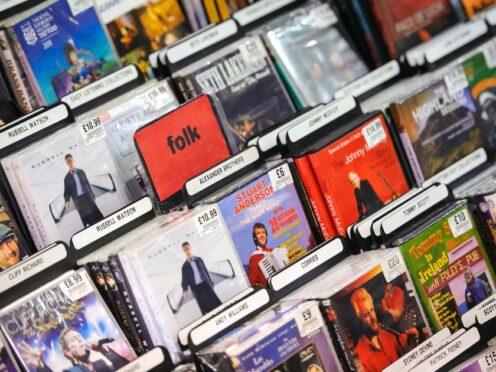Around half of musicians are earning less than £14,000 a year from music, a new survey has found.
A total of 5,867 performers were asked questions about earnings and working patterns for a new report that was published on Monday.
Charity Help Musicians and organisation the Musicians’ Union (MU) said it was the first nationwide census for musicians in the UK.
Music Minds Matter Explore has a whole host of resources, personal stories, and professional guidance, to help you with whatever support you need.
Find out more: https://t.co/6DBLvx7Akq
— Help Musicians (@HelpMusicians) August 24, 2023
It revealed that the average annual income from music is reported at £20,700, which is based on all respondents earning any percentage of their total income from music.
Most musicians surveyed earn more than £14,000, according to report, with 43% saying they earn less than that figure.
The average median income in the UK is £33,280, according to a 2022 report by the ONS, and the average salary for a working-age person with a degree in the UK of £38,500
The musician survey said under half (40%) of musicians reported earning all of their income from music, and this falls to 17% amongst those who report as being “self-taught” without a formal music qualification.
The report revealed more than half (53%) sustain their career by sourcing other forms of income outside of music – and 75% of those who have other income in addition to music report only seeking this work for financial reason.
Naomi Pohl, MU general secretary, said the survey “highlights the challenges musicians face carving out and sustaining a career as a musician in 2023”.
She added: “As the UK’s trade union for musicians, this census will help us be more effective at representing our members and tackling the nuanced challenges different communities of musicians face.
“Whether that is working with the industry to improve diversity, negotiating better pay and conditions, or lobbying governments to secure the support our members need and deserve, the Musicians’ Census gives us the vital data to take on these challenges on behalf of our members.”
The researchers also found 54% of musician respondents have no access to employment benefits and 28% report having an employer-contribution pension.
According to ONS figures, the workplace pension participation rate in the UK was at 79% in April 2021.
A great privilege of my job is being able to listen to the diverse experiences of musicians, all the good and all the bad, and know @WeAreTheMU might help promote the good & eliminate the bad. Thanks to all members who shared at our London AGM today ✊#BehindEveryMusician
— Naomi Pohl (@NaomiPohl) September 5, 2023
Financial obstacles and barriers to entry reported by musicians include the cost of equipment, transport, training, not knowing anyone in the industry and unsociable working hours.
Sarah Woods, chief executive of Help Musicians, said: “The (census)… paints a picture of the distinctive set of challenges musicians face to sustain a career in music.
“Although the data shows some big challenges musicians face, it also highlights how committed musicians are in continuing to produce the music we all know and love; demonstrating how resilient our population of musicians truly is.”
